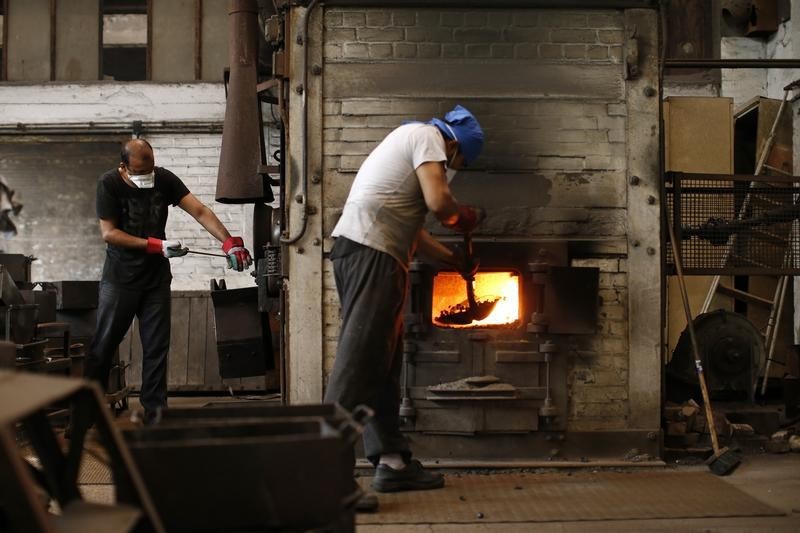ATHENS, Jan 2 (Reuters) - A downturn in Greek manufacturing slowed in December as declines in output and new orders eased, but companies cut jobs for the first time in seven months as backlogs of work shrank, a survey showed on Monday.
Markit's Purchasing Managers' Index (PMI) for manufacturing, which accounts for about 10 percent of the Greek economy, rose to a four-month high of 49.3 points last month from 48.3 in November. A reading below 50 denotes a contraction in activity.
Manufacturers saw a further decline in new orders, including from abroad. They cited softer demand and the instability of the country's financial sector, although the fall was the weakest
since September. "Firms struggled with a lack of work during the month, a result of weaker demand for Greek manufactured goods and lowered their workforce for the first time since May," said IHS Markit economist Samuel Agass.
"Overall, 2016 has been a challenging year for the sector which continues to remain well short of a full recovery. Firms will be hopeful that the new year can bring renewed growth but until consumption picks up the likelihood remains slim."

Faced with fewer workloads, companies cut their headcounts, although the pace of job shedding was slight, the survey showed. "Although the overall downturn eased to the weakest in four
months with output and new orders contracting at softer rates, the latest deterioration capped off the worst quarter of the year for Greek goods producers," Agass said.
Manufacturers faced a substantial increase in input costs in December, mainly linked to higher prices for steel, zinc and dairy products, forcing them to raise output prices for the first time in 70 months.
